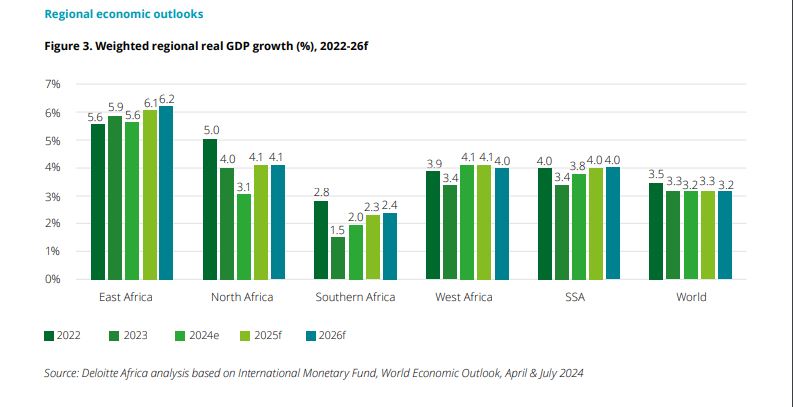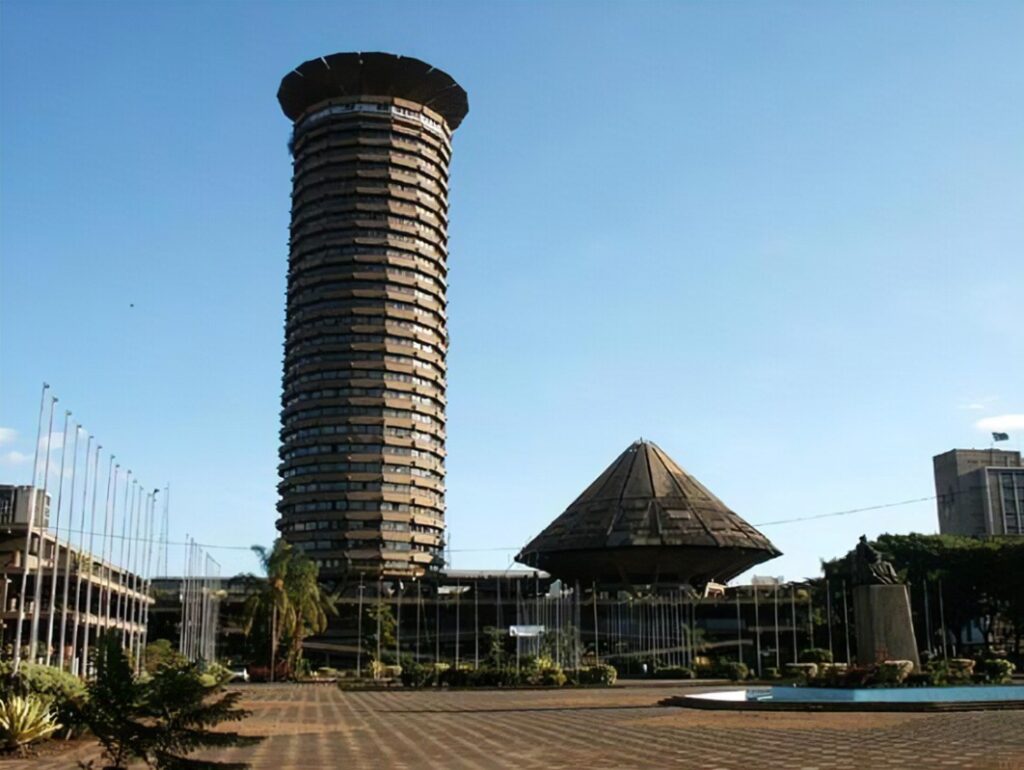- Key reforms ranging from privatisation initiatives in Kenya to financial liberalisation in Ethiopia, are positioning East Africa as a prime destination for PE investment.
- In Uganda, upcoming oil production in 2025 is expected to increase PE activity, particularly in sectors and businesses that will benefit indirectly from the oil industry.
- Tanzania’s one stop facilitation centre introduced in 2023 seeks to streamline the investment process by integrating key authorities that issue permits and approvals.
East Africa is experiencing a surge in private equity (PE) interest, driven by a wave of government reforms that are reshaping the financial industry. Kevin Kimotho, East Africa Private Equity Leader at Deloitte Africa, has highlighted these developments in the firm’s latest Deloitte Africa Private Equity Confidence Survey 2024.
These reforms, ranging from privatisation initiatives in Kenya to financial liberalisation in Ethiopia are positioning East Africa as a prime destination for PE investment.
Currently, Kenya continues to be the most preferred PE destination in East Africa at 28 percent, followed by Tanzania and Uganda both tied at 22 percent, the survey shows.
Kenya’s privatisation of State-Owned Enterprises
East Africa’s largest economy Kenya is at the forefront of these reforms, with the government recently approving a list of 26 public institutions for sale. This move signals an intent to transition towards a more dynamic, private-led economy. The institutions on the list span various sectors, including energy, manufacturing, financial services, and hospitality, offering diverse opportunities for PE investors.
In March, President William Ruto’s administration okayed the privatisation of seven government-owned entities, including the Development Bank of Kenya, raising the total number of entities slated for privatisation to 17. According to the Cabinet, the decision to privatise the Development Bank was driven by its successful transition into a fully-fledged deposit-taking commercial bank regulated by the Central Bank of Kenya (CBK).
Other state-owned enterprises (SOEs) identified for privatisation are Golf Hotel Ltd, Sunset Hotel Ltd, Mt. Elgon Lodge Ltd, and Kabarnet Hotel Ltd. Additionally, hospitality establishments under Kenya Safari Lodges and Hotels Ltd, such as Mombasa Beach Hotel, Ngulia Safari Lodge, and Voi Safari Lodge, will be sold to private investors.
Previously, Ruto Cabinet announced plans to privatise several parastatals, including Kenya Literature Bureau (KLB), Kenyatta International Convention Centre (KICC), Kenya Seed Company Ltd, Kenya Pipeline Company (KPC), New Kenya Co-operative Creameries, the National Oil Company of Kenya (NOCK), Numerical Machining Complex, Kenya Vehicle Manufacturers Limited, and Rivatex East Africa Limited. However, these plans were delayed after the opposition party ODM filed a case in the High Court, blocking the sales.
According to Deloitte, however, the path to successful privatisation in Kenya is not without challenges. The bureaucratic process, legal hurdles, and varying public sentiment can complicate efforts.
For privatisation to truly boost investor confidence, Deloitte adds, the government will need to streamline the process. This includes rationalising the regulatory framework, simplifying transaction approvals, and increasing public awareness of the benefits of privatisation.
PE firms can play a crucial role in this transition, especially in sectors such as manufacturing, which are key to Kenya’s economic diversification and job creation goals. By leveraging their expertise, PE investors can modernise operations, improve efficiency, and expand the market reach of these public entities, positioning them for robust growth and profitability.
Adding to the attractiveness of Kenya for PE investment are recent capital markets reforms. For example, Kenya’s Capital Markets (Public Offers, Listings, and Disclosures) Regulations, 2023, aim to deepen the capital markets and make initial public offerings (IPOs) a viable exit route for investors. These legislative developments are poised to further enhance investor confidence and stimulate more significant PE activity in the country.

Ethiopia’s financial market liberalisation
Ethiopia is also undergoing significant reforms, particularly in its financial market. In July 2024, the country adopted a competitive market-based exchange rate regime as part of its broader structural reforms. This move is expected to enhance Ethiopia’s foreign currency reserves, which are crucial for securing International Monetary Fund (IMF) support in debt restructuring.
While there are concerns that this new exchange rate system could lead to the devaluation of the Ethiopian birr, Deloitte observes that the long-term benefits are expected to outweigh the risks. By weakening the forex black market, the reform will facilitate smoother PE exits, making Ethiopia a more attractive destination for investors. This development ensures greater clarity and stability, making it easier for investors to repatriate profits.
Ethiopia’s financial sector is also opening up to foreign investors, with the government moving to liberalise the banking industry. For years, the Ethiopian banking sector has been off-limits to foreign entities due to strict regulations. However, the finalisation of new banking liberalisation rules is set to change this, allowing foreign ownership of Ethiopian banks. This development could revolutionise Ethiopia’s financial landscape and attract significant foreign direct investment (FDI) into the banking sector.
For PE firms, these reforms represent a unique opportunity to enter a market that has historically seen limited PE activity due to exit challenges, largely driven by the fixed exchange rate regime. With these changes, Ethiopia is positioning itself as a viable market for PE investment, offering the potential for substantial returns.
Read also: July financing for startups in Africa hits record $420M as debt funding grows
Favorable reforms in Uganda and Tanzania
Uganda and Tanzania are also making strides in creating an investment-friendly environment. In Uganda, oil production is set to begin in 2025, marking a historic milestone for the country’s economy.
Over the past decade, Uganda’s financial services and agricultural sectors have been the main destinations for PE and development finance institution (DFI) investment. The upcoming oil production is expected to increase PE activity, particularly in sectors and businesses that will benefit indirectly from the oil industry.
On its part, Tanzania, under the leadership of President Samia Suluhu Hassan, has introduced a series of reforms aimed at attracting foreign investment. The Tanzania Investment Regulations, 2023, aim to streamline the investment process by integrating key authorities that issue permits and approvals.
This one-stop facilitation centre allows businesses to apply for certificates of incentives, offering benefits such as a 75 percent import duty relief on capital goods.
Additionally, the Business Licensing Regulations, 2023, have been introduced to simplify and standardise the licensing process for businesses. These reforms have positioned Tanzania as one of Africa’s top ten FDI recipients, making it an attractive destination for PE investment.
A golden opportunity for PE Investment
The convergence of these timely policy reforms and regulatory changes across East Africa has created a great opportunity for PE investment. These strategic initiatives are crafting a landscape that offers diverse opportunities for robust returns and sustainable economic development.
For PE firms, this moment represents more than just profitable exits; it is a significant opportunity to shape the future of East Africa’s economic landscape. As reforms continue to take root, East Africa is poised to become a leading hub for private equity investment in the coming years.











